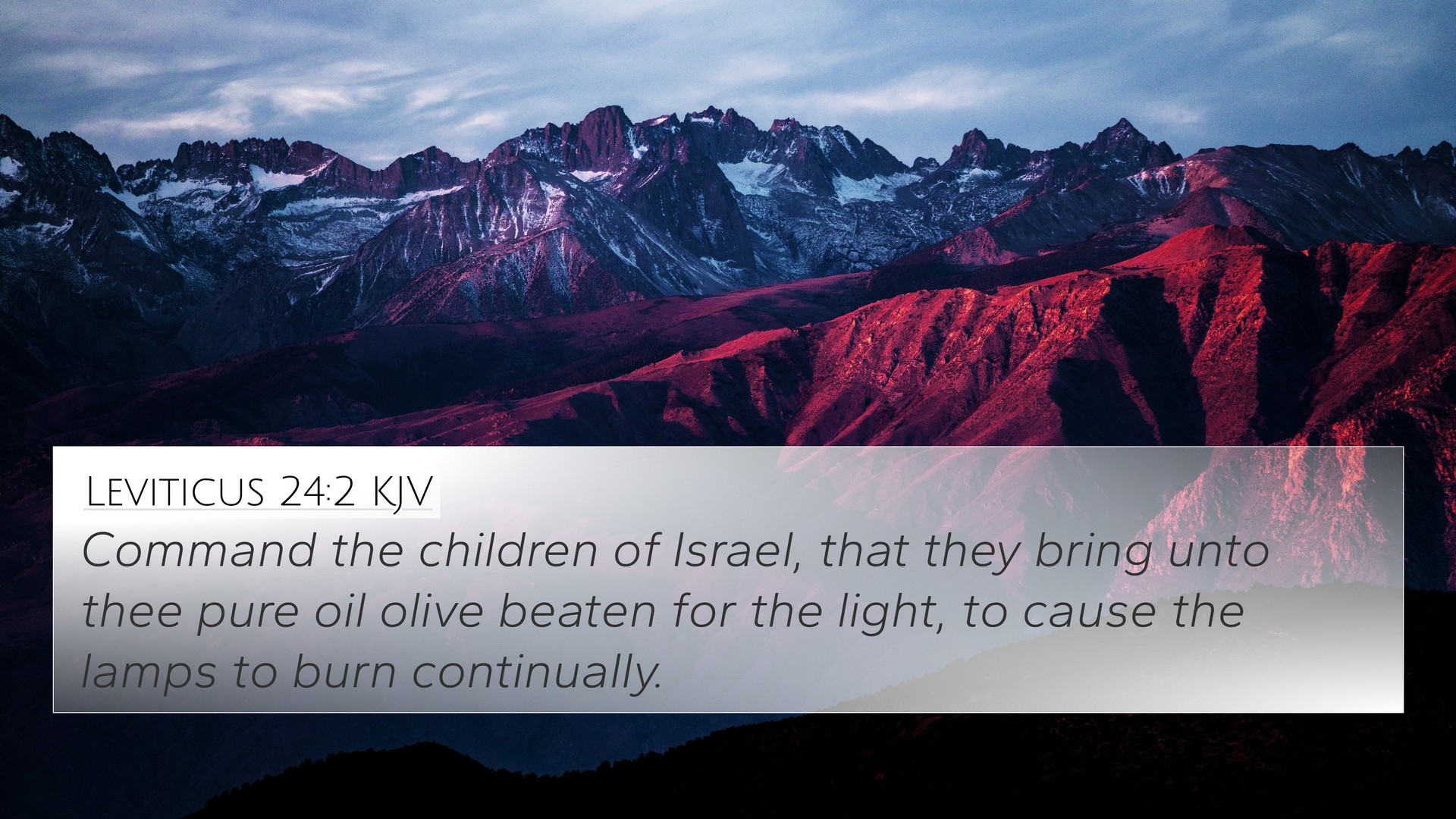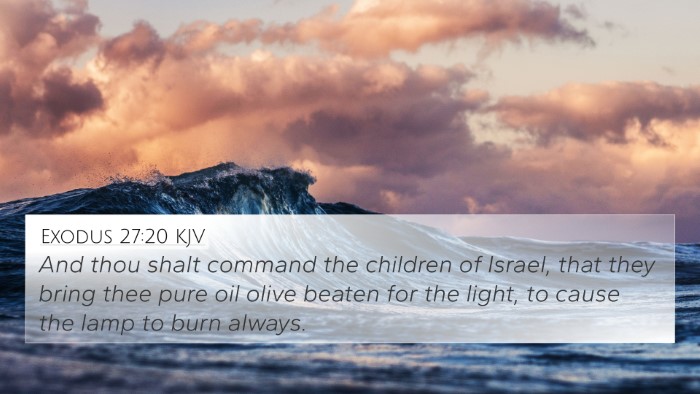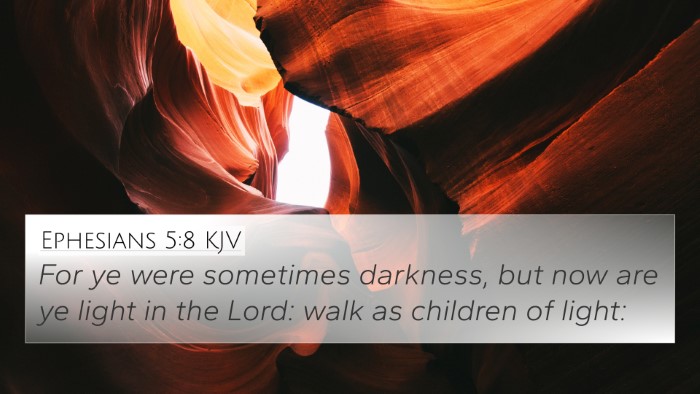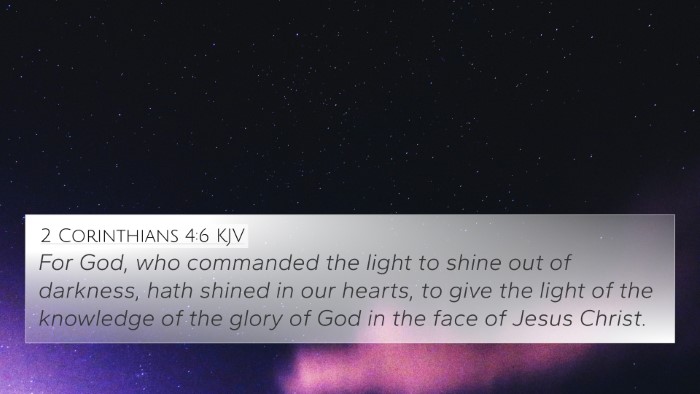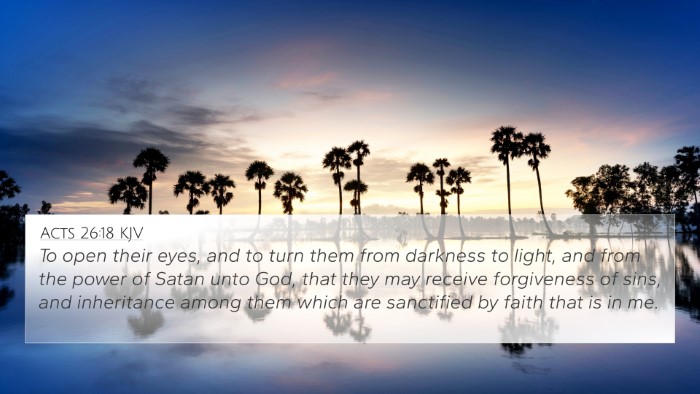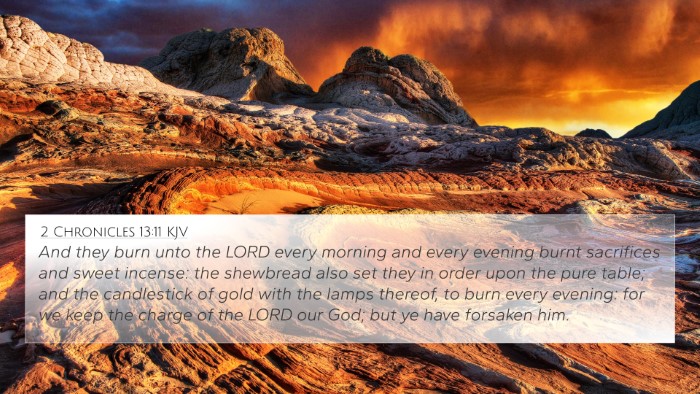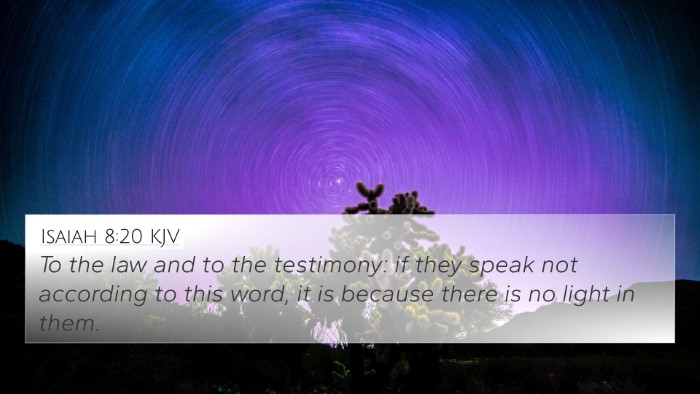Understanding Leviticus 24:2
Verse: "Command the sons of Israel that they bring to you clear oil from beaten olives for the light, to make a lamp burn continually."
Summary and Commentary
Leviticus 24:2 instructs the Israelites on the kind of oil that should be used for the lamps in the Tabernacle. This command not only emphasizes the importance of worship but also signifies the purity and care that should be employed in the service of God. The oil represents the Holy Spirit, vital for illumination, and its continual burning symbolizes the unceasing worship and presence of God among His people.
Key Themes in Leviticus 24:2
- Divine Instructions: This verse presents God's specific directives to His people, highlighting the significance of obeying His commands in religious practices.
- Symbolism of Oil: Oil in the Bible frequently symbolizes the Holy Spirit and divine anointing, underpinning the essential or spiritual aspect of worship.
- Continual Worship: The command for the lamp to burn continually reflects the expectation of ongoing devotion and reverence towards God.
Insights from Commentaries
Matthew Henry
Henry emphasizes the meticulous nature of instructions and the importance of proper preparation in worship. He notes that the oil was to be “beaten” and “clear,” pointing to a mandate for purity and refinement in what is offered to God, illustrating how the quality of our offerings reflects our relationship with Him.
Albert Barnes
Barnes highlights that the continual burning of the lamps symbolizes the eternal nature of God’s presence among His people. The clear olive oil represents the light of knowledge and spiritual understanding, suggesting that faithful worship is integral to receiving divine illumination.
Adam Clarke
Clarke discusses the practical implications behind the command, suggesting that such care in worship reflects the heart attitude that God desires from His followers. He suggests that the physical needs of the lamps indicate the spiritual need for God’s guidance and light in the lives of His people.
Cross-References
Leviticus 24:2 connects with multiple Scripture passages, illustrating the thematic ties throughout the Bible:
- Exodus 27:20-21: Directions for the lamps, emphasizing the continuation of light before the Lord.
- 1 Samuel 3:3: The lamp of God was going out, signaling the importance of prophetic vision and divine presence.
- Matthew 5:14-16: Believers are called the light of the world, reflecting God’s light in their lives.
- Revelation 1:12-13: The imagery of lampstands reflects the churches, paralleling the continual light of God’s presence.
- Philippians 2:15: Believers are to shine as lights in the world, echoing the notion of extending God’s continual light.
- Psalm 119:105: God’s Word as a lamp to our feet and light to our path, underlining guidance through divine illumination.
- Isaiah 60:1-3: The prophetic call for the light to arise in Zion indicates the glory of God dwelling among His people.
Theological Implications
The requirement for the oil and continual burning of the lamp suggests various theological implications:
- Worship as a Priority: Just as the lamp was vital for the Tabernacle, worship continues to be central in a believer’s life.
- Holiness in Service: The oil signifies the necessity of purity when approaching God and serving in His kingdom.
- God’s Unchanging Presence: The continual light reminds believers of God's constant and faithful presence in their lives.
Practical Applications
Applying Leviticus 24:2 in contemporary life can involve:
- Dedication to Worship: Engaging in regular, dedicated times of worship to foster a consistent connection with God.
- Seeking Spiritual Purity: Endeavoring to offer God our best—both in conduct and service—in all facets of life.
- Sharing God’s Light: Actively reflecting God’s love and truth to those around us through our actions and words.
Conclusion
Leviticus 24:2, through its directives for the use of clear olive oil for the lamps, serves as a profound reminder of the importance of purity, commitment, and the continual presence of God in our lives. By understanding its implications and connections to other Bible verses, believers can deepen their faith and worship practices.
